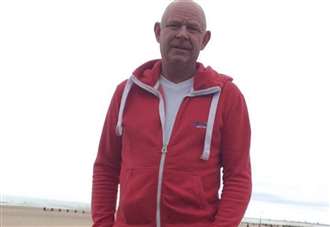An NHS nurse from Hythe, David Popple, has been struck off the nursing register after admitting to selling drugs for “chemsex” sessions. This decision follows a misconduct hearing held by the Nursing and Midwifery Council (NMC) earlier this month, where it was determined that Popple’s actions impaired his ability to practice safely.
Popple, who had a career spanning over 40 years in healthcare, was previously found in possession of £3,300 worth of methylamphetamine, a synthetic drug, in October 2022. His illicit activities came to light when police responded to a disturbance in Radnor Park Crescent, Folkestone, uncovering nearly 51 grams of the drug along with paraphernalia such as syringes and deal bags.
Career and Personal Struggles
First qualifying as a nurse in 1983, Popple dedicated many years to volunteering with St John’s Ambulance. However, his professional life took a downward turn following a series of personal tragedies, including a cancer diagnosis in 2021 and the death of his best friend. These events, coupled with a challenging work environment, contributed to his mental health struggles.
During the courtroom proceedings at Canterbury Crown Court, defence barrister John Briant explained that Popple’s actions were not driven by profit. Instead, they arose from a desire for social acceptance within a small community engaged in chemsex activities. Briant emphasized that Popple was not part of a larger drug distribution network, describing his involvement as a means to help a limited group of friends.
Chemsex typically involves sexual activity under the influence of drugs, predominantly among men, and can lead to significant health and social issues.
Legal Consequences and Future Implications
In March 2024, Recorder Daniel Stevenson opted to suspend a two-year prison sentence for Popple, citing the tragic nature of his situation as a healthcare professional who became embroiled in drug dealing. The court mandated that he complete 140 hours of unpaid work and 25 rehabilitation activity sessions.
Stevenson remarked that the gravity of Popple’s actions was especially concerning given his background in healthcare and understanding of the harm drugs can inflict. He noted that Popple’s motivations appeared to stem from a quest for social status rather than financial gain.
The NMC hearing, conducted in private, concluded with a striking-off order for Popple, confirming that his professional capabilities were irreparably impaired. The details of the hearing remain confidential, but it has been confirmed that Popple presented his case during the meeting.
The East Kent Hospitals NHS Trust has been approached for comment regarding the incident and its implications for the healthcare community.
This case highlights the complex interplay of personal struggles and professional responsibilities, underscoring the challenges that healthcare professionals may face in maintaining ethical standards while navigating their own difficulties.







